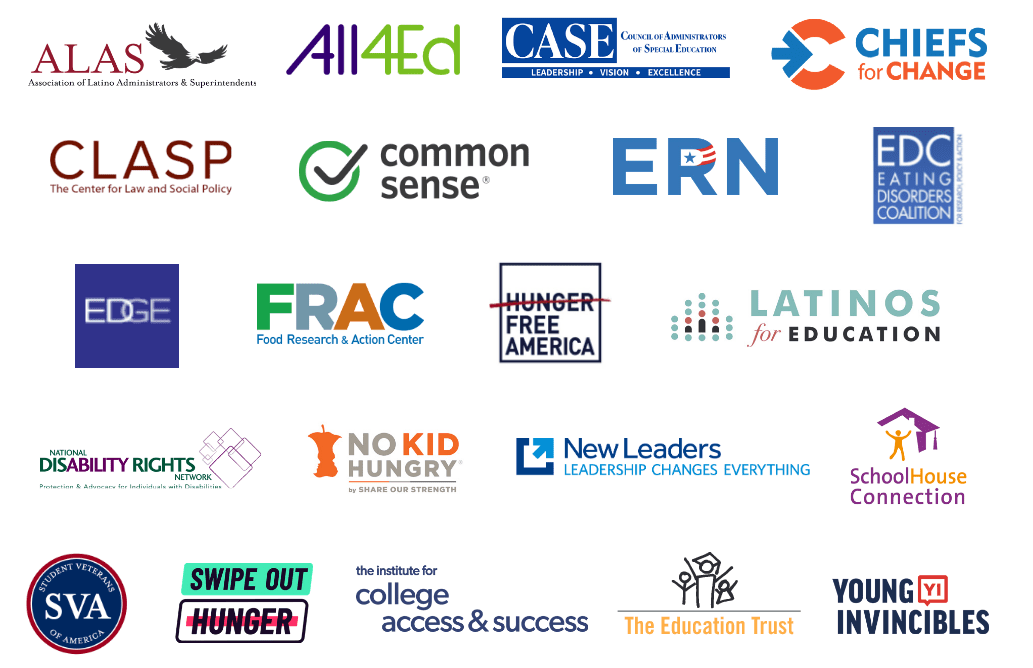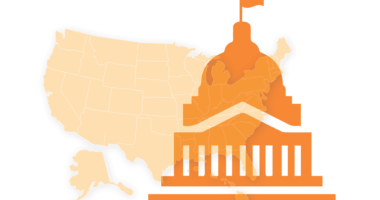Joint Letter to U.S. House & Senate Appropriations Committees Regarding Funding for a White House Conference on Food, Nutrition, Hunger, and Health
Chair Patrick Leahy
Vice Chair Richard Shelby
U.S. Senate Committee on Appropriations
S-128 The Capitol
Washington, DC 20515
Chair Chris Van Hollen
Ranking Member Cindy Hyde-Smith
U.S. Senate Appropriations Subcommittee on Financial Services and General Government
S-128 The Capitol
Washington, DC 20515
Chair Rosa DeLauro
Ranking Member Kay Granger
U.S. House Committee on Appropriations
H-307 The Capitol
Washington, DC 20515
Chair Mike Quigley
Ranking Member Steve Womack
U.S. House Appropriations Subcommittee on Financial Services and General Government
2000 Rayburn House Office Building
Washington, DC 20515
DEAR CHAIRS LEAHY, DELAURO, VAN HOLLEN, AND QUIGLEY AND RANKING MEMBERS SHELBY, GRANGER, HYDE-SMITH, AND WOMACK:
As you continue finalizing Fiscal Year (FY) 2022 appropriations, we, the undersigned organizations, urge you to include funding for a White House Conference on Food, Nutrition, Hunger, and Health (“Conference”). The Conference, proposed by bipartisan legislation from Senator Booker and Representative McGovern (S. 3064/H.R. 5724), received $2.5 million in funding in the House-passed FY22 Financial Services and General Government appropriations bill. Ensuring that this funding is included in the fi nal FY22 appropriations package could have a
transformational impact on helping end our nation’s hunger crisis.
As you continue finalizing Fiscal Year (FY) 2022 appropriations, we, the undersigned organizations, urge you to include funding for a White House Conference on Food, Nutrition, Hunger, and Health (“Conference”). The Conference, proposed by bipartisan legislation from Senator Booker and Representative McGovern (S. 3064/H.R. 5724), received $2.5 million in funding in the House-passed FY22 Financial Services and General Government appropriations bill. Ensuring that this funding is included in the final FY22 appropriations package could have a transformational impact on helping end our nation’s hunger crisis.
Our 21 organizations have worked to stem inequities in education — and addressing hunger for our students from pre-K to college is essential in our efforts. Research shows that hunger is deeply detrimental to learning. Students with consistent access to healthy food perform better on assessments, have better attendance rates, and long-term positive outcomes. Food security is essential for educational equity.
At its core, food insecurity is also a racial justice issue, and the pandemic exacerbated food insecurity among communities of color. Two in five Black and Latino households (nearly 40%) with children struggled to put food on the table at the beginning of the pandemic.
It is abundantly clear that Black, Latino, and Native students, as well as students from low-income backgrounds, have suffered disproportionately from the negative effects of the COVID-19 pandemic, resulting in disproportionate amounts of unfinished learning. It will take leaders from every sector to work together to support the students who have suffered the most.
For nearly two years, the federal government has unified to deploy unprecedented resources to ensure students and families have sufficient access to nutritious food. The Pandemic Electronic Benefits Program (P-EBT) provided essential benefits to more than 8 million families during school closures last year — and lifted at least 2.7 to 3.9 million children out of hunger during that time. The Department of Agriculture expanded eligibility and increased maximum benefits for the Supplemental Nutrition Assistance Program (SNAP), enabling at least 3 million additional college students from low-income backgrounds to qualify for benefits. And the Child Tax Credit monthly payments reduced the number of families reporting they do not have enough to eat by 3.3 million. During a time of crisis, these key steps have stemmed the rise of childhood hunger and mitigated the disproportionate impact of the pandemic on students of color and students from low-income backgrounds.
Now is not the time to lose our momentum. We can end childhood hunger — but we need bold ideas, input from the people most impacted, and a national commitment to achieve that critical goal.
A White House Conference on Food, Nutrition, Hunger, and Health can help do just that. This whole-of-government approach, which we were pleased to see proposed by Senator Booker and Representative McGovern, would not only help us build on our recent efforts to address long standing silos between education, agriculture, healthcare, and hunger, but it will also facilitate important partnerships among stakeholders, and initiate collaboration across sectors necessary to end hunger
Just as a series of Children’s Conferences hosted by U.S. Presidents from Roosevelt to Nixon — including the first White House Conference on Food, Nutrition, and Hunger — sparked real change through the creation of essential programs like SNAP, the Special Supplemental Nutrition Program for Women, Infants, and Children (WIC), and the National School Breakfast and Lunch Program, so too can this proposed conference catalyze support for changes necessary to end hunger.
A White House Conference can rally resources around ensuring that all children have access to nutritious food. It can bring together diverse stakeholders. And ultimately, it can generate the ideas and resources that will end childhood hunger in America.
Again, we respectfully request that you include funding for a White House Conference on Food, Nutrition, Hunger, and Health in the finalized Fiscal Year 2022 appropriations package.
Thank you for your continued leadership on this critical issue.
Sincerely,

CC: Chair Tammy Baldwin, Ranking Member John Hoeven, Chair Patty Murray, Ranking Member Roy Blunt, Chair Debbie Stabenow, Ranking Member John Boozman, Chair David Scott, Ranking Member Glenn Thompson, Senator Cory Booker, and Congressman Jim McGovern




